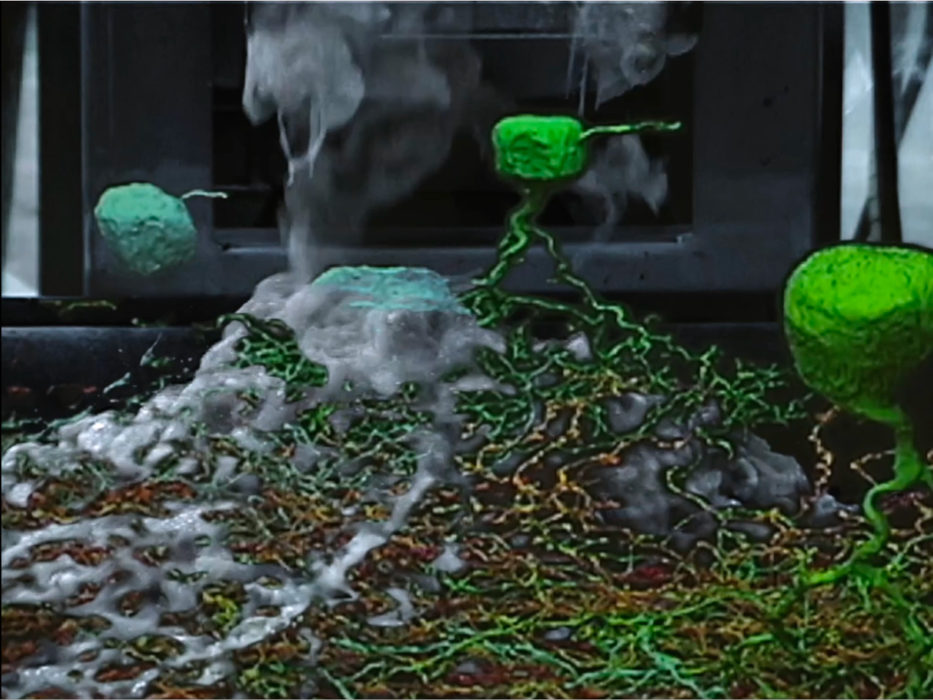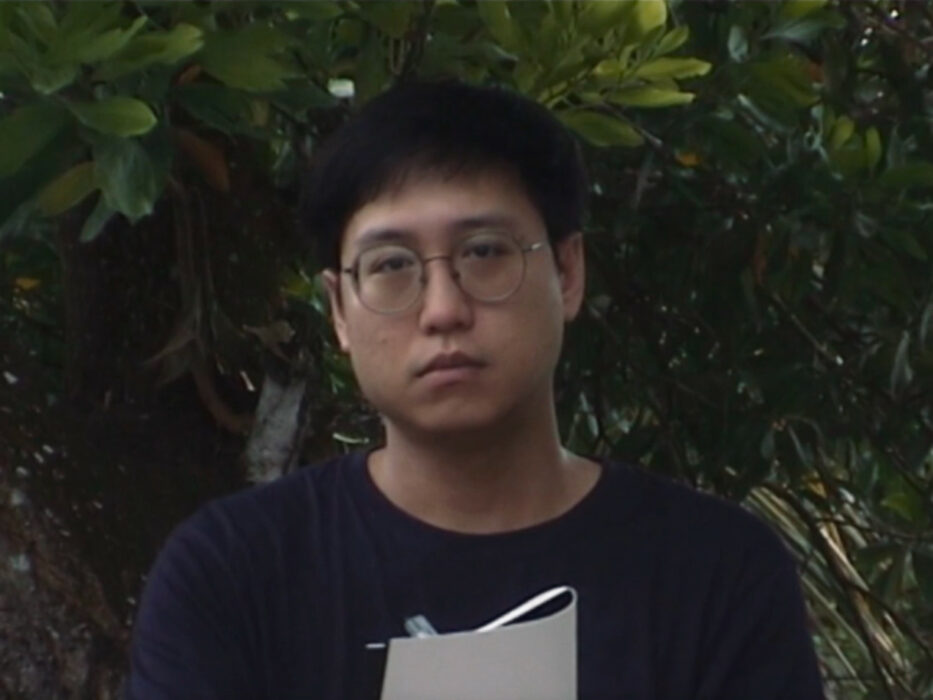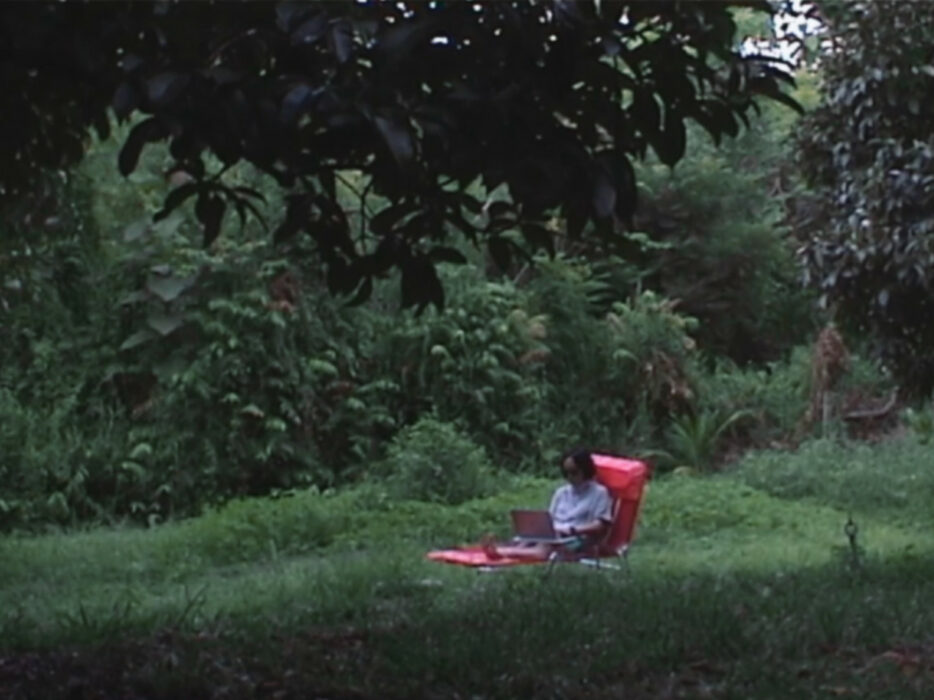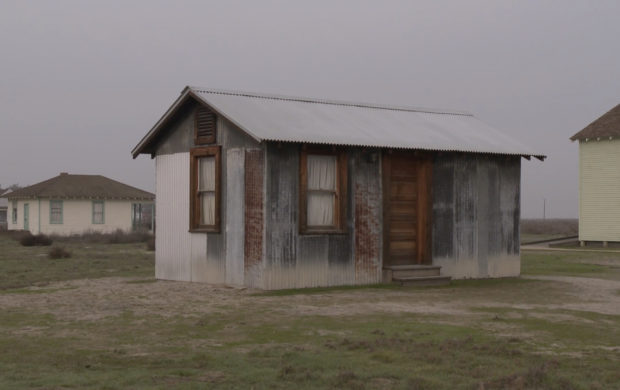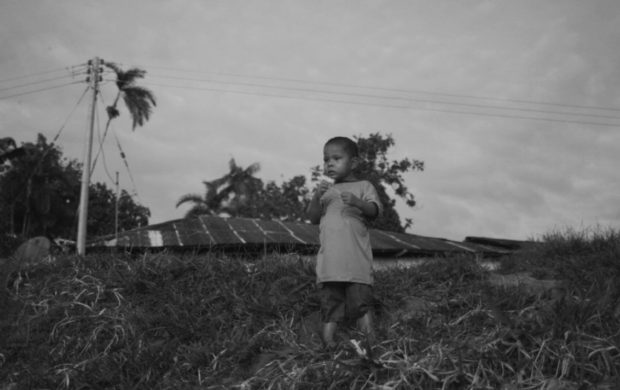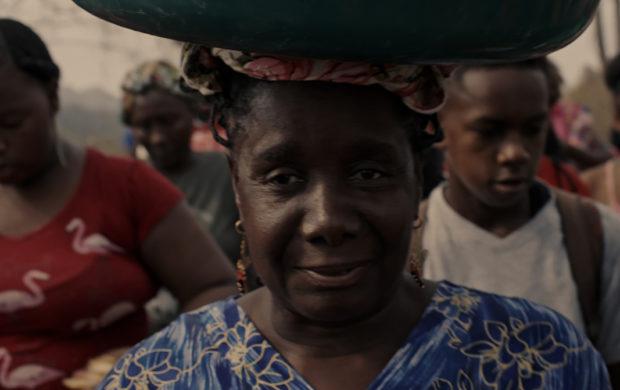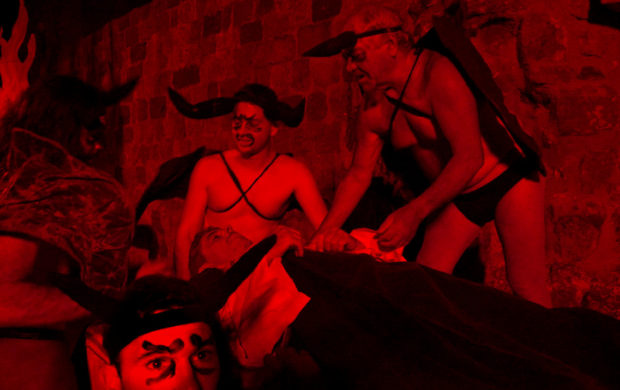MANGOSTEEN
- 2022
- Thailand
- 40 min
- Languages: German, Thai
A story about storytelling: after returning to his hometown to work in his sister’s fruit processing factory, Earth slowly but surely pulls out of the family business to dedicate himself to writing an abstract, gory novel.
Rather than a documentary or a fiction, Mangosteen can be described as a humorous essay on (film) narration that attempts to map a field of possible futures. The setting is a Thai factory where mangosteens are pressed and their juice bottled, providing the starting point and reference from which the film takes off in different ways. Tulapop Saenjaroen explores the full range of its plastic possibilities: the fleshy form of this fruit, black outside and white inside, the movements of the machines, the employees’ strange outfits – and puts it through the filter of an Hi8 camera that that gives everything a soggy feel. The tone is set by the voice of the narrator, who introduces himself as “the narrator” and opens a first breach in the fiction – a reference to Borges follows on. When even-tempered Earth suddenly comes up with the plan to decapitate his sister, and when she then begins to speak in German, it becomes clear that something has gone wrong with the software that gave birth to these characters, as with the machine that caps the bottles of mangosteen juice. Or that the fiction has its own life, which escapes its creator. Everything in the story begins to overflow, be it the image or sound, and takes the form of a collage where we see 3D mangosteens and a collection of pictures of cat paws. Although caught in a seemingly free universe, the characters question the remaining constraints: why do they still speak a human language and how can one “disintegrate into many things”? With a film as a kind of experimental field, we can perhaps imagine new ways of being in the world.
Olivia Cooper-Hadjian
- Production : Electric Eel Films (Nuttaphan Yamkhaekhai)
- Photography : Parinee Buthrasri
- Sound : Chalermrat Kaweewattana
- Editing : Tulapop Saenjaroen
- Music : Liew Niyomkarn
- Print source : Tulapop Saenjaroen - tulapop@gmail.com
